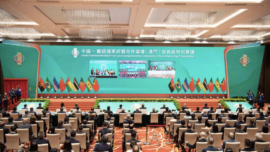Pedro Cortés
Lawyer
[email protected]
Recently, casino operators have received instructions from the Economic Department on what is to be considered illegal promotion and marketing of games of fortune and chance.
Despite it might be within the competences of the government to do so, it seems that the said instructions go beyond what is established by law and also what was mutually agreed in the concession contracts (read as concession and sub-concession contracts) entered into between the Macau SAR and local gaming operators (read as concessionaires and sub-concessionaires).
In fact under Macaus Advertisement Act (Law no. 7/89/M) there are restrictions on gaming advertisements but these restrictions are also constrained to the key target of the advertisement message. To put it simply, it may be possible to advertise games of fortune and chance but the essential message of such advertisement cannot be the games of fortune and chance.
So the sole criteria that can be established to define if a certain advertisement is or is not compliant with Macau law is whether or not the games of fortune and chance are the key message of any such advertisement.
That said, lets also have a quick look at the concession contracts. All contracts impose upon gaming operators the obligation to conduct the advertising and marketing campaigns of its enterprises, especially casinos, in Macau and abroad. Furthermore, the contracts also oblige the government and the operators to co-ordinate advertising and marketing campaigns outside of Macau.
Without even touching on the gaming advertisement framework, it seems that whoever made such instructions is being more Catholic than the Pope, when it stipulates that casino operators cannot make advertising campaigns showing, for instance, tools of games of fortune and chance, such as roulette wheels, playing cards, chips, table games, etc., or any image of casino interiors.
Such instructions collide with the law and should not have been put in place. Furthermore, they may violate the concession contracts, as they prevent the operators from fulfilling one of their obligations under the said contracts.
We do not intend to know what the essential message is for the purpose of the law. But it is surely much less than what is stated in the referred instructions.
Under the Rule of Law, at least according to what I barely learned, administrative instructions cannot infringe upon the laws. What shall, then, be the way? Amend Macaus Advertisement Act defining exactly what should be considered as an essential message for the purpose of games of fortune and chance. In addition, it might be required to amend the contracts currently in place, as an obligation still exists. At least it was some minutes ago when I started to write what may be considered a piece of advertising of the essential rules of the Rule of Law system Macau still pretends to enact. Otherwise, we may walk swiftly to the end of the principle of One country, two systems, with the second system integrated into the first at a blink of instructions.
























